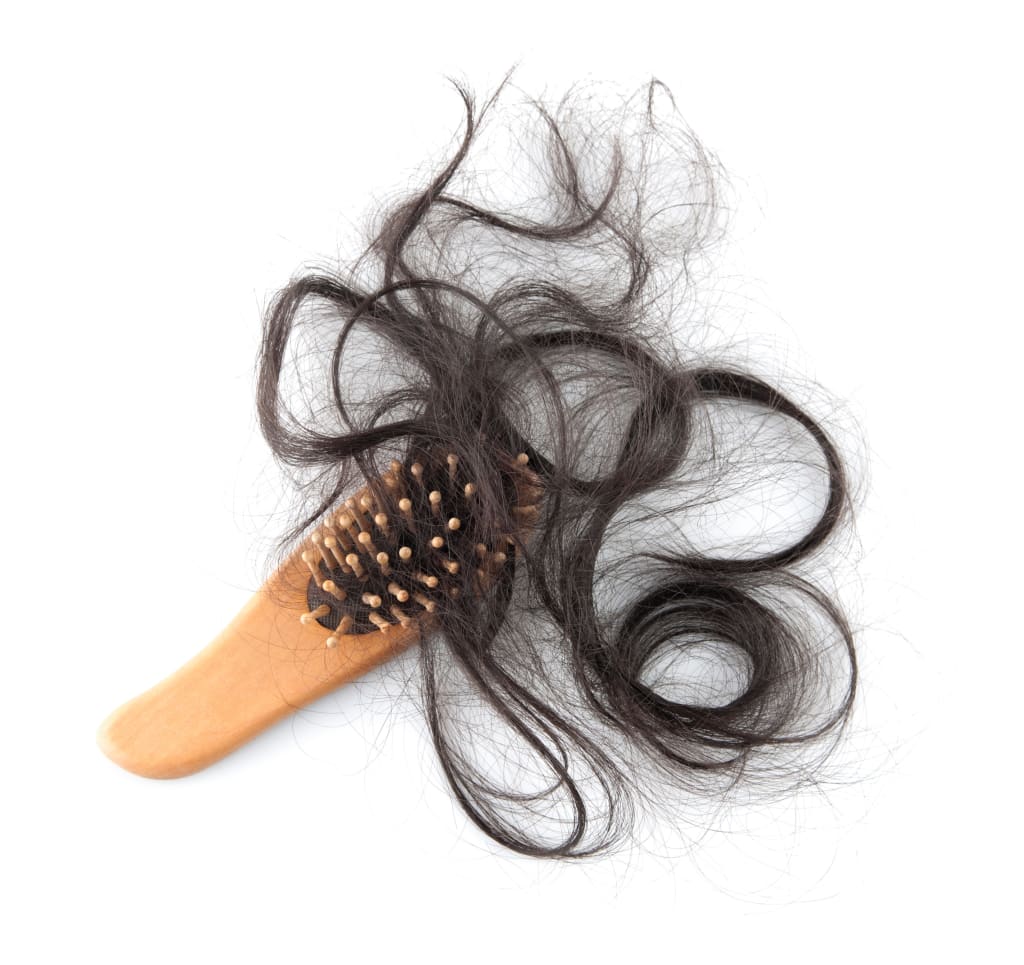Shedding Light On Thinning Hair In Women:
Causes And Potential Solutions

Hair loss is a common concern that affects millions of women worldwide. While it is often associated with men, women can also experience thinning hair, leading to a loss of volume and self-confidence. Understanding the causes behind female hair loss is crucial in finding effective solutions to address this issue. In this article, we will shed light on the causes of thinning hair in women and explore potential solutions.
Causes Of Thinning Hair In Women:
Hormonal Changes: Hormonal fluctuations during pregnancy, childbirth, menopause, and even certain medical conditions can trigger hair loss in women. The hormone dihydrotestosterone (DHT) can negatively impact hair follicles, leading to hair thinning.
Genetic Predisposition: Just like men, women can inherit a genetic predisposition to hair loss. Androgenetic alopecia, also known as female pattern baldness, is the most common type of hair loss in women and can be attributed to genetic factors.
Nutritional Deficiencies: A lack of essential nutrients, such as iron, zinc, vitamins D and E, and biotin, can contribute to hair thinning in women. Poor nutrition can weaken hair follicles and impede healthy hair growth.
Stress And Emotional Factors: Stressful events, emotional trauma, and chronic stress can disrupt the hair growth cycle, leading to excessive shedding and thinning of hair. Conditions like telogen effluvium can result from these stress-related factors.
Medical Conditions: Certain medical conditions, such as thyroid disorders, autoimmune diseases (like alopecia areata), and scalp infections, can cause hair loss in women. Treating the underlying condition is crucial in managing hair thinning.
Potential Solutions For Thinning Hair In Women:
Nutritional Modifications: Ensuring a well-balanced diet that includes essential vitamins, minerals, and proteins is vital for maintaining healthy hair. Incorporate foods like leafy greens, lean proteins, eggs, nuts, and fruits rich in antioxidants into your diet.
Scalp Care Routine: Implementing a proper scalp care routine can help improve hair health. Regularly cleanse your scalp and use gentle, sulphate-free shampoos and conditioners. Avoid excessive heat styling and harsh chemical treatments that can further damage the hair.
Medications and Topical Treatments: Over the counter or prescription medications, such as minoxidil (Rogaine), can be effective in stimulating hair growth. Additionally, topical treatments containing ingredients like ketoconazole or saw palmetto may help combat hair loss in women.
Hormonal Therapy: In cases where hormonal imbalances contribute to hair loss, hormonal therapy under the guidance of a medical professional may be considered. This can help regulate hormone levels and potentially prevent further hair thinning.
Platelet-Rich Plasma (PRP) Therapy: PRP therapy involves extracting the patient's blood, processing it to isolate platelet-rich plasma, and injecting it into the scalp. This procedure aims to stimulate hair growth and enhance the health of existing hair follicles.
Hair Transplantation: In advanced cases of hair loss, hair transplantation may be a viable option. This surgical procedure involves taking hair follicles from areas with healthy hair growth and implanting them into the thinning or balding areas.
Cosmetic Solutions: Various cosmetic solutions, such as hair extensions, wigs, or hair volumizing products, can help create the appearance of fuller hair while the underlying causes are being addressed.
It is important to note that everyone’s experience with hair loss may vary, and the effectiveness of these solutions can differ.
Consulting with a dermatologist or a trichologist (hair specialist) is highly recommended to determine the underlying cause of hair loss and to receive personalized advice on suitable treatments.
Curious to learn about a reputable dermatology clinic? Follow this link to discover a trusted establishment renowned for its exceptional hair treatments, as well as cutting-edge solutions like CoolSculpting, HydraFacial, Laser Hair Removal, and much more.
Thinning hair in women can be distressing, but understanding the causes and exploring potential solutions can pave the way for effective management. From addressing nutritional deficiencies to exploring medical treatments, various options are available.
Remember, early intervention is key, so seeking professional guidance at the first signs of hair thinning is crucial. With the right approach, women can regain their confidence and achieve healthier, fuller hair.
About the Creator
Christopher David
I am a writer, editor and an avid reader.





Comments
There are no comments for this story
Be the first to respond and start the conversation.